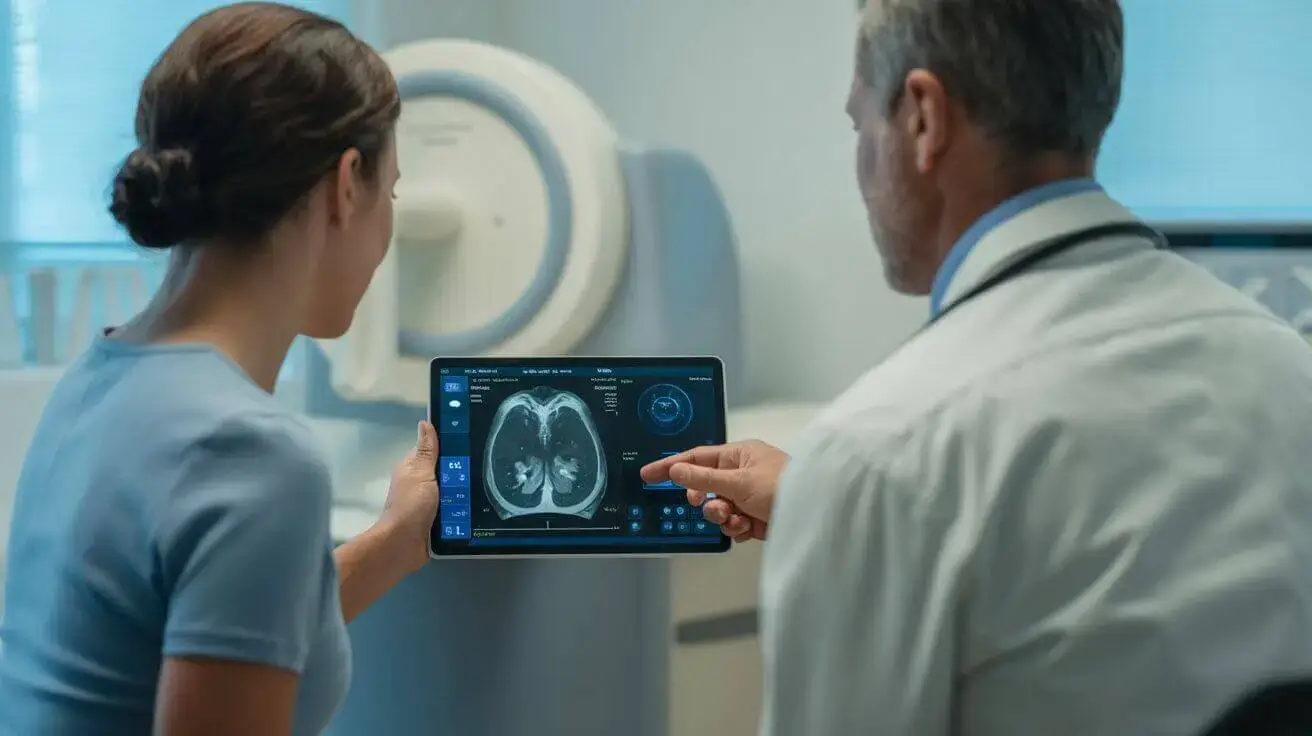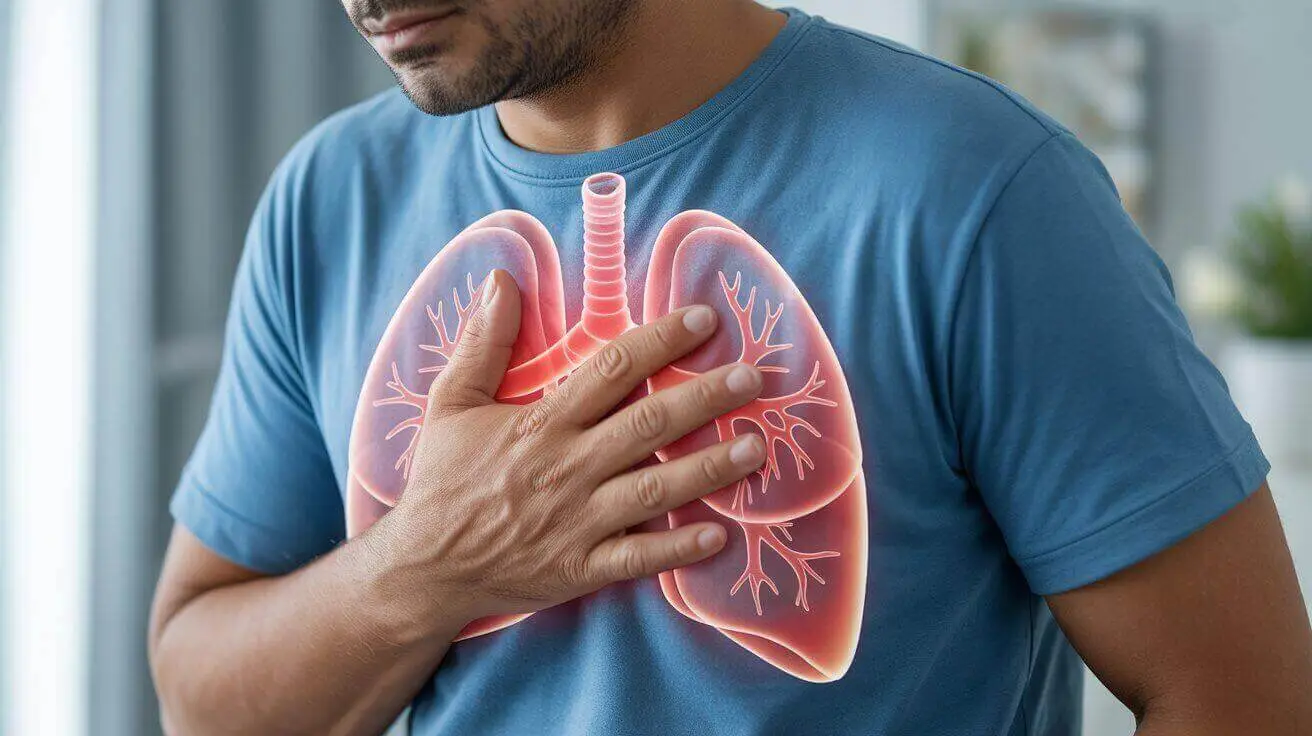For many men, waking up with an erection, often referred to as “morning wood” or nocturnal penile tumescence (NPT), is a familiar and reassuring sign of good health. It’s a natural physiological phenomenon that occurs during REM sleep, indicating healthy blood flow and nerve function. But what happens when this reliable morning ritual starts to fade, and you notice your morning wood disappears with age? It can be a source of concern, even anxiety, for many. While occasional absence is normal, a consistent decline can signal underlying health issues that are important to address. Let’s explore why this natural occurrence might diminish and, more importantly, what steps can be taken to restore it.
Why Morning Erections Decrease With Age
🎥 Watch: What Causes Morning Erections to Change With Age
Prefer to watch? This quick video breaks it down clearl.
Nocturnal penile tumescence (NPT) is a complex process influenced by hormonal balance, vascular health, and neurological function. As men age, several physiological changes can contribute to a decrease in the frequency and rigidity of morning erections:
Main Factors Behind the Loss of Morning Erections
- 1. How Testosterone Affects Morning Wood: Testosterone, the primary male sex hormone, plays a crucial role in libido and erectile function. While testosterone levels naturally decline with age (a condition sometimes referred to as andropause), a significant drop can impact NPT and overall erectile quality.
📖 Read more: How to Increase Testosterone Naturally: 5 Science-Backed Strategies
- 2. Is Blood Flow the Main Culprit? : Erections rely on healthy blood flow to the penis. Conditions like atherosclerosis (hardening of the arteries), high blood pressure, high cholesterol, and diabetes can impair blood vessel function, reducing the ability to achieve and maintain erections, including NPT. These conditions are more prevalent with age. (Kloner & Speakman, 2002)
- 3. Neurological Factors: The nervous system plays a vital role in initiating and sustaining erections. Nerve damage due to conditions like diabetes, multiple sclerosis, or prostate surgery can disrupt the signals necessary for NPT. (Hijazi et al., 2004).
- 4. Can Poor Sleep Disrupt Erections? : NPT is linked to REM sleep cycles. Sleep apnea, insomnia, and other sleep disturbances can disrupt these cycles, leading to fewer or less robust morning erections. (Andersen et al., 2024)
📖 Read more: How Sleep Deprivation Impacts Blood Sugar: What You Need to Know
- 5. Medications That Could Be to Blame: Certain medications, such as antidepressants, blood pressure medications, and some prostate treatments, can have erectile dysfunction as a side effect, which may also affect NPT.
- 6. Psychological Causes of No Morning Wood: Stress, anxiety, depression, and relationship issues can all contribute to erectile dysfunction, including the absence of morning erections. While NPT is largely involuntary, psychological well-being can still play a role. (Wu et al., 2022).
Also read: Is lemon water really a health miracle—or just hype?
Discover what science actually says in Lemon Water Benefits: What Science Really Says.
Taking Action: How to Address and Potentially Restore Morning Erections

The good news is that for many men, the decline in morning erections is a treatable condition. Addressing the underlying causes often leads to significant improvement. Here are practical steps and considerations:
- 1. Consult a Healthcare Professional: The first and most important step is to talk to your doctor. They can perform a thorough evaluation, including blood tests to check hormone levels (like testosterone) and assess for underlying conditions such as diabetes, heart disease, or neurological issues. They can also review your current medications.
- 2. Lifestyle Modifications: Many factors contributing to NPT decline are linked to overall health. Adopting a healthier lifestyle can make a significant difference:
Healthy Diet: Focus on a balanced diet rich in fruits, vegetables, whole grains, and lean proteins. Limit processed foods, unhealthy fats, and excessive sugar.
Regular Exercise: Physical activity improves cardiovascular health, blood flow, and can help manage weight and stress. Aim for at least 30 minutes of moderate-intensity exercise most days of the week.
Maintain a Healthy Weight: Obesity is a risk factor for many conditions that impact erectile function.
Quit Smoking: Smoking damages blood vessels and impairs blood flow, significantly impacting erectile health.
Limit Alcohol Intake: Excessive alcohol consumption can negatively affect erectile function.
- 3. Manage Stress and Mental Health: If stress, anxiety, or depression are contributing factors, seek support from a therapist or counselor. Techniques like mindfulness, meditation, and yoga can also be beneficial.
📖 Read more: The Vicious Cycle of Stress and Sleep Deprivation
- 4. Optimize Sleep: Prioritize 7-9 hours of quality sleep per night. If you suspect a sleep disorder like sleep apnea, discuss it with your doctor for diagnosis and treatment.
- 5. Medication Review: Discuss any medications you are taking with your doctor to see if they could be contributing to the issue. There might be alternative options or adjustments that can be made.
When to Talk to Your Doctor
If you’ve noticed a consistent decrease in morning erections, especially combined with other symptoms like fatigue, reduced libido, or mood changes, it’s a good idea to talk to your healthcare provider. Early evaluation can help identify and address the root causes effectively.
Frequently Asked Questions About Morning Wood
Q: Is it normal to lose morning wood with age?
A: Occasional absence is normal, but a persistent decline may signal health issues.
Q: Can I regain morning erections naturally?
A: Yes, through lifestyle changes, hormone balance, and better sleep.
Q: Does morning wood mean good testosterone levels?
A: It can be a general indicator, but lab tests are the only reliable method.
Want to Go Deeper?
Explore these high-quality scientific sources:
- Blick et al. (2016) – Is Erectile Dysfunction an Example of Abnormal Endothelial Function?
- Wu et al. (2022) – The association between erectile dysfunction and sleep quality
- Kohn et al. (2018) – Poor sleep quality is associated with clinically significant erectile dysfunction
- Morley et al. – Bioavailable testosterone and nocturnal erections in older men (Springer)
- Riemann et al. (2012) – REM sleep instability and sexual dysfunction
Medical Disclaimer: This content is for educational purposes only and does not replace professional medical advice, diagnosis, or treatment. Always consult your physician or a qualified healthcare provider with any questions about a medical condition.










